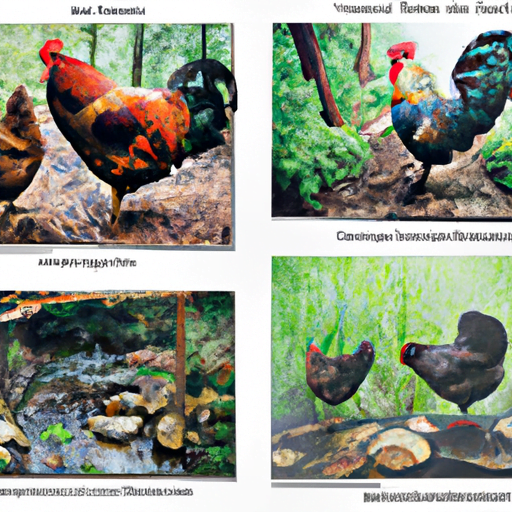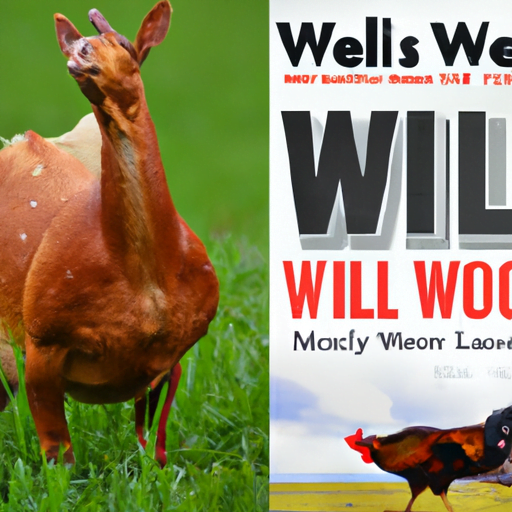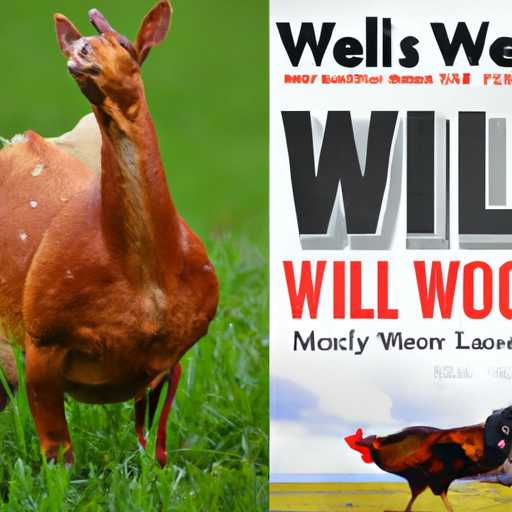Have you ever wondered which farm animal lives the longest? It’s an interesting question, isn’t it? I mean, we all know that farm animals are bred and raised for specific purposes, but have you ever stopped to think about their lifespan? Well, believe it or not, some farm animals can actually live quite a long time. In fact, some of them can even outlive our beloved pets.
Let’s start with the obvious ones – horses and cows. These majestic creatures can actually live well into their 20s and sometimes even into their 30s. Can you believe it? That’s longer than most dogs! And then there are chickens. Now, we all know that chickens are bred for their eggs and meat, but did you know that they can also live for several years? It’s true! In fact, I’ve heard of some chickens living up to 10 or even 12 years.
But the real surprise comes from pigs. Yes, pigs. We often think of pigs as big, lazy animals that we only see on our dinner plates, but the truth is, they can actually live for a surprisingly long time. Some pigs have been known to live up to 15 years or more. Can you imagine having a pig as a pet for over a decade? It’s definitely something to think about.
So, there you have it – some farm animals can live a lot longer than you might think. And who knows, maybe one day you’ll decide to have a pet horse or chicken or even a pig. But in the meantime, stick around because we’ve got even more fascinating facts about farm animals and their surprising longevity coming up in the rest of the article.
The Surprising Longevity of Farm Animals
When it comes to farming, one of the main considerations for farmers is the longevity of their animals. The longer an animal can live, the more value it provides to the farm. In this article, we will explore the factors that affect the longevity of farm animals, including genetic factors, environmental factors, and healthcare factors. We will also take a closer look at some specific farm animals that are known for their long lifespans.

Genetic Factors
Genetic factors play a significant role in determining the longevity of farm animals. The quality and health of their genetics can have a direct impact on how long they live. This is why breeding and genetic selection are crucial in the farming industry.
Role of Breeding
Breeding is the process of mating animals with desirable traits to produce offspring with those same traits. When it comes to longevity, certain breeds of animals are known to live longer than others. By selectively breeding for longevity, farmers can increase the average lifespan of their animals.
Genetic Selection for Longevity
Genetic selection involves choosing animals with the desired genetic traits to become parents of the next generation. Farmers can actively select animals that have a family history of long lifespans and breed them together. Over time, this can result in a population of animals with an increased likelihood of living longer.
Environmental Factors
Alongside genetics, environmental factors also play a crucial role in determining how long farm animals can live. The conditions in which they are raised and the care they receive can significantly impact their lifespan.
Access to Clean Water and Nutritious Food
Farm animals need access to clean water and nutritious food to thrive. Adequate hydration and proper nutrition are essential for their overall health and well-being. Farmers must ensure that their animals have access to fresh, clean water and a balanced diet to support their longevity.
Adequate Shelter and Space
Proper shelter and adequate space are essential for farm animals to live long, healthy lives. Well-constructed barns or sheds protect animals from extreme weather conditions and provide a comfortable environment. Additionally, providing enough space for animals to move and exercise allows them to maintain their physical health and mental well-being.
Management Practices
Practices such as regular cleaning and sanitization of living areas, proper waste management, and effective parasite control are vital for maintaining the health and longevity of farm animals. Good management practices minimize the risk of disease outbreaks and create a safe and healthy environment for the animals.

Healthcare Factors
The healthcare that farm animals receive also greatly influences their longevity. Preventive measures, veterinary care, and disease control are crucial in ensuring the overall well-being and extended lifespan of the animals.
Preventive Measures
Preventive measures such as vaccinations and regular health check-ups can significantly reduce the risk of diseases and health issues in farm animals. Vaccinations protect animals from common diseases prevalent in their environment, while routine check-ups allow farmers to catch and address potential health concerns early on.
Veterinary Care
Farm animals, just like any other pets or livestock, require proper veterinary care. Regular visits from a veterinarian can help identify and address any health issues promptly. This can be especially important for older animals, as they may be more susceptible to certain health conditions.
Disease Control
Disease control is a critical aspect of maintaining the health and longevity of farm animals. Regular monitoring, proper biosecurity protocols, and appropriate medication can help prevent the spread of diseases and minimize their impact on the animals and the farm.
Farm Animals with Long Lifespan
While the longevity of farm animals can vary depending on various factors, some breeds are known for their longer lifespans. Let’s take a closer look at some of these animals.
Horses
Horses are known for their remarkable longevity. With proper care and maintenance, horses can live well into their 20s or even 30s. Regular exercise, a balanced diet, and routine veterinary care are essential for their well-being.
Cows
Certain breeds of cows are known for their long lifespans. For example, the Holstein breed, commonly used for milk production, can live up to 15 years or more with proper care. Providing them with proper nutrition and managing their herd effectively are crucial for their longevity.
Chickens
Contrary to popular belief, chickens can live longer than most people realize. While commercial broiler chickens have shorter lifespans due to their rapid growth, many heritage breeds can live up to 8 years or more. Optimal housing conditions, access to nutritious feed, and proper health care contribute to their longevity.
Pigs
Pigs, too, can live longer than commonly believed. Breeds such as the Gloucestershire Old Spot and Tamworth can live up to 10 years or more with proper care. Providing them with a balanced diet, suitable housing, and regular veterinary attention contribute to their extended lifespans.
Goats
Goats are known for their hardiness and can live well into their teens and sometimes even longer. They are adaptable animals and thrive in various environments. Proper nutrition, access to clean water, and disease control are essential for their longevity.
In conclusion, the longevity of farm animals is influenced by various factors such as genetics, environment, and healthcare. By selectively breeding for longevity, providing optimal environmental conditions, and ensuring proper healthcare, farmers can extend the lifespan of their animals. Understanding the specific needs of each species and taking appropriate measures to meet those needs can contribute to the surprising longevity of farm animals. So, whether you’re raising horses, cows, chickens, pigs, or goats, remember that their long and healthy lives are not entirely out of reach. By prioritizing their well-being, you can enjoy the benefits of these remarkable creatures for many years to come.




